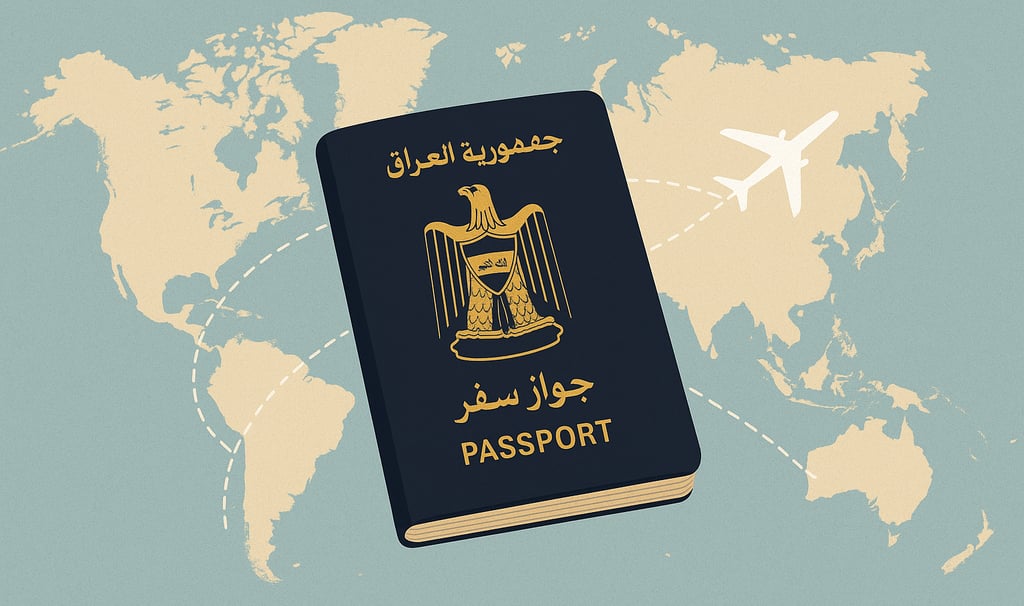Visa Access for Iraqis Must Be Facilitated in Order to Reduce the Pressure of Emigration
8/25/20252 min read


The process of obtaining a tourist visa for Iraqi citizens is today an obstacle course. For most destinations the procedure can take months and cost hundreds of dollars even for a trip as short as one week. One of the collateral consequences of this situation is that many Iraqis, from all communities, have set their minds on obtaining a second citizenship that would open the doors of numerous countries without the burden of applying for a tourist visa.
This citizenship or long term residence can be acquired through investment but more often it is pursued through emigration. People tell themselves that it would be only for a few years, minimizing the long term impact such a decision will have on their lives. In reality a vicious circle emerges. The more travel options are restricted the more emigration is encouraged, and the more emigration rises the stricter visa requirements become, which again fuels new waves of departure.
Today, applying for a visa to Turkey, the United States or a Schengen country requires travelers to book tickets in advance, reserve hotels, provide employer certificates, obtain bank statements that attest to income, purchase insurance, and above all demonstrate that they do not present a risk of becoming immigrants rather than tourists. Consulates are overwhelmed and increasingly outsource the management of applications to private companies that charge high fees. These firms even propose so called VIP services that provide no real advantage beyond an additional cost.
In comparison, Iraqis see citizens of many other countries travel freely without visas to destinations that remain out of reach for them. The frustration grows sharper when families observe the ease with which their relatives who emigrated in the past and who are now Swedish, German, American or Australian move across the globe. For an Iraqi cousin who stayed behind, the difference is striking and deeply unfair.
Instead of restricting the granting of tourist visas to Iraqis it would be more logical to make them easier to obtain, while maintaining certain safeguards against permanent immigration. The real barrier in the current system is not tourism itself but the perceived risk of migration. A more balanced policy could address this issue while preserving mobility.
Signs of change are already visible. Greece has recently opened a direct Athens Erbil line designed in part to encourage Iraqi tourism. The paradox is clear. Iraqi tourists generally have significant purchasing power and often spend generously when abroad. The results were immediate. The Greek consulate is now receiving a surge of visa requests and the waiting time for a response already exceeds one month. This is a far cry from the 1970s when my parents’ generation could walk into a European embassy in Baghdad and leave the same day with a visa in hand.
At a time when Western economies, especially in Europe, are facing crises and when anti immigration sentiment is rising, there may be a pragmatic solution in rethinking the policy applied to Iraqis. Facilitating visa procedures could generate a virtuous circle. More flexible travel options would mean less stigma, less temptation to emigrate, reduced brain drain, a stronger capacity for development, and eventually a more stable country. This is precisely what the Iraqi people aspire to, and it would benefit not only them but also the countries that welcome them as visitors.
